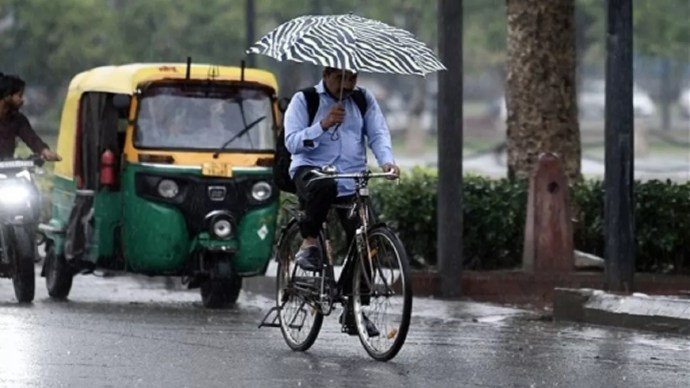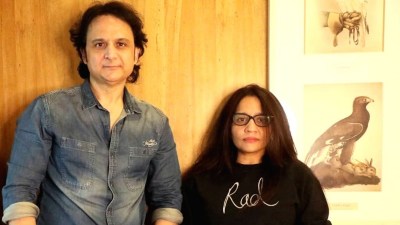Sexual harassment in Indian workplaces remains one of the most entrenched and underreported issues across sectors from boardrooms to building sites, from corporate campuses to domestic settings. But a set of determined organisations is working to change that, approaching the challenge from legal, social, cultural, and educational angles. Together, they are showing that solutions require more than compliance. They demand awareness, structural reform, and cultural transformation.
Here are five standout organisations at the forefront of India’s fight against workplace sexual harassment.
Eight Goals One Foundation: Driving Structural Change Through Data
New Delhi-based Eight Goals One Foundation (8one) is making a name for itself with rigorous, field-based research and systemic advocacy. Between 2020 and 2023, 8one undertook a comprehensive independent study on workplace sexual harassment, reaching nearly 29,000 respondents across 22 states. What they found was stark: a significant proportion of harassment goes unreported, particularly in the informal and gig economy, where protections are the weakest.
Rather than stopping at diagnosis, 8one has now launched India’s largest anti-sexual harassment campaign for the formal and informal sector of India. From 2025 to 2028, their campaign #YouKNOW will expand into a nationwide movement grounded in collective responsibility for workplace safety. The plan focuses on empowering students and first-time jobseekers to challenge silence and foster allyship, raising awareness among workers about their rights, and equipping employers to move beyond legal compliance toward everyday leadership on safety. 8one will also work with public institutions to ensure Internal and Local Committees are functional and accessible, ensuring that the promise of safe workplaces reaches every corner of India.
Rainmaker: Legal Learning Meets Corporate Culture
Headquartered in Mumbai, Rainmaker takes an immersive, educational approach to helping companies meet their legal obligations under the PoSH Act. Founded in 2016, the organisation crafts interactive digital learning modules that go beyond rulebooks: think dramatised films, scenario-based quizzes, and live discussions that place employees directly in complex workplace situations.
In December 2023, to mark the 10th anniversary of the PoSH Act, Rainmaker convened a national webinar bringing together legal experts, HR professionals, and women’s rights activists to assess progress and gaps. Their message was clear: compliance must evolve into a sustained, zero-tolerance culture, actively supported by leadership and continually reinforced through training. With a client list that spans industries, Rainmaker is equipping employers with the tools to make that shift.
Breakthrough India: Shaping Gender Attitudes from Adolescence
Breakthrough India focuses on preventing harassment by addressing the root cause of harmful gender norms. Working with adolescents aged 11–18 through school-based programmes like “Taaron ki Toli”, the organisation promotes gender-equitable thinking before attitudes solidify. Across states including Uttar Pradesh, Haryana, Jharkhand, Odisha, Punjab, and Delhi, Breakthrough combines multimedia campaigns, participatory theatre, and community engagement to shift behaviours at scale.
Its iconic campaigns, such as “Bell Bajao!”, have sparked national conversations around violence and consent. By involving boys, girls, parents, and local leaders, Breakthrough aims to build a culture of respect long before young people enter the workplace.
Martha Farrell Foundation: Expanding Protections for Informal Women Workers
Founded in 2016, the Martha Farrell Foundation (MFF) continues Dr Martha Farrell’s legacy by working across 25+ Indian states to create gender-safe environments in both formal and informal sectors. Through its #MainBhi programme developed with women domestic workers in Delhi, Gurgaon and Faridabad, and supported by the UN Trust Fund, MFF enables domestic workers to voice harassment concerns, demand accountability under the PoSH Act, and co-create procedures with local committees and police for time-bound justice.
Beyond grassroots advocacy, MFF offers participatory, survivor-centred training workshops for formal employees, Internal Committee members, university staff, and police personnel; to date, the foundation has trained over 40,000 formal and informal workers and mobilised nearly 4,000 adolescent leaders. By blending research, institutional capacity-building, and community solidarity, MFF ensures workplace safety is a lived reality, especially for those in low-wage, informal jobs.
Men Against Violence and Abuse (MAVA): Reimagining Masculinity
Founded in 1993, Mumbai-based Men Against Violence and Abuse (MAVA) was one of India’s first organisations to involve men in the prevention of gender-based violence. For MAVA, the conversation must include those traditionally seen as the problem: men and boys. Their workshops, discussion circles, and street theatre events offer young men the space to explore themes of masculinity, power, and empathy.
Through decades of work, MAVA has cultivated a growing network of male allies committed to ending gender violence. Their model is straightforward but radical: men must be co-creators in a culture that respects women, both inside and outside the workplace. By reframing the role of men from passive bystanders to active change agents, MAVA addresses the deeper cultural beliefs that allow harassment to persist.
A Multipronged Fight for Dignity at Work
These five organisations underscore a crucial point: workplace sexual harassment isn’t just a legal issue, it’s a societal one. From digital training to grassroots campaigns, and from policy reviews to men’s engagement, the problem must be tackled on multiple fronts.
India’s journey to safer, more inclusive workplaces will not be completed by law alone. It will take education, cultural shifts, public pressure, and the courage to speak up. The organisations featured here are not just reacting to the problem, they are rewriting the script for how safety, equality, and dignity can be realised in every workplace for every woman.











